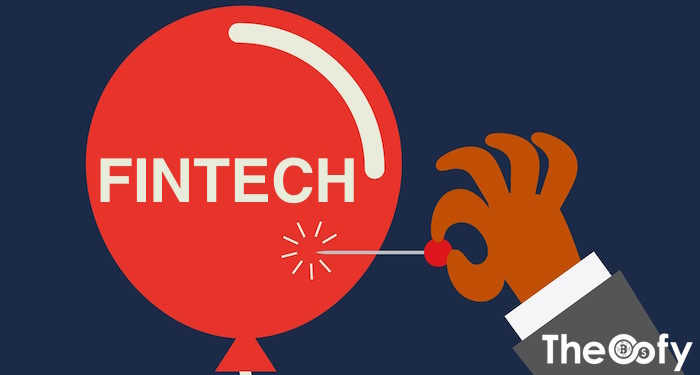Could Fintech Be in a Bubble? While skeptics declare the fintech bubble will quickly burst, most professionals think this revolutionary field will keep on flourishing. Fintech, short for financial technology, became a main buzzword in 2015. That’s whenever a group of fintech startups emerged and distinct they would interrupt the financial market – from established banks to payment firms. In 2015 financing for fintech startups exceeded $20 billion, a 66% increase over 2014.
Proponents say fintech will ultimately impact the way every consumer spends, saves and invests their money. On the other hand, fintech doubters claim these digital platforms do not possess the scale and edge against your competitors they have to contend with major banks and banking institutions.
Fintech Bubble – or Boom?
While cynics say fintech isn’t designed to last, many big-name bankers would strongly disagree. Actually, a number of former top-tier banking executives have discovered their method to fintech startups.
Take Anshu Jain, for instance. After stepping down from his position as co-head of Deutsche Bank in 2015, Jain became an adviser to SoFi, among the largest online lenders within the United states (see SoFi: What You Must Know About This Different Lender). Many more have followed suit, including Antony Jenkins, former CEO of Barclays. In June, Jenkins registered a brand new fintech business called 10X Future Technologies after declaring the banking market is facing an “Uber moment.” Additionally, Vikram Pandit, former chief executive of Citigroup, recently committed to a number of lending websites that match investors and borrowers online. This list continues on.
Meanwhile, fintech startups still attract vast amounts of dollars in venture capital (VC) funding. Globally, VC-backed fintech companies raised $14.4 billion of financing this past year and the other $4.9 billion just within the first quarter of 2016. (For additional about this, watch That Are Venture Capitalists?) The vast majority of these fintech funding deals happened in The United States with 128 transactions. However, Asian fintech companies saw the greatest value, raising an unprecedented $2.6 billion.
Yet, thanks in large part to controversy at LendingClub, the greatest online lender within the United states, some skeptics are questioning the staying power of fintech firms. LendingClub shares plummeted by a lot more than 25% once the company’s CEO was force to resign amid a scandal (for additional, see Banks Suspend LendingClub Purchases). The peer-to-peer lending (P2P) arena remains under intense scrutiny, and stocks for a few P2P lenders are trading whatsoever-time lows.
This might explain why VC-funding for fintech took a tumble within the third quarter of 2016. Based on a written report from KPMG International and CB Insights, third quarter funding fell by 17% from $2.9 billion. The United States saw the biggest drop, having a funding reduction in 68% when compared to the same quarter this past year. Some blame the decline on investor uncertainty associated with the presidential election, while some repeat the bubble is bursting.
“While we still see significant investment into fintech companies globally, the euphoria for mega-deals we saw in to the latter 50 % of 2015 has waned,” wrote Anand Sanwal, CB Insights chief executive, within the report. “Total investments to key areas like marketplace lending and blockchain technology have both seen declines heading in to the tail-end of 2016.”
The KPMG International and CB Insights report also discussed investor impatience for a few fintech technologies to prove their worth. Namely, blockchain technology happens to be underneath the fintech microscope. The brainchild of startup Ripple Labs Inc., blockchain is really a distributive ledger technology that received the biggest funding round in The United States this season.
“The capability to move blockchain from proof-of-concept to adoption and production continues to be minimal,” reads the report. “While the marketplace continues to be giving blockchain companies lots of space to prove themselves, investors can also be more and more worried about results.”
The Conclusion
While fintech became one from the hottest financial buzzwords, some cynics believe the sector might not be worth all of the hype. However, fintech has were able to raise vast amounts of venture capital dollars – not forgetting the interest of big-time banking executives. And can the fintech bubble burst? Only time will inform.




